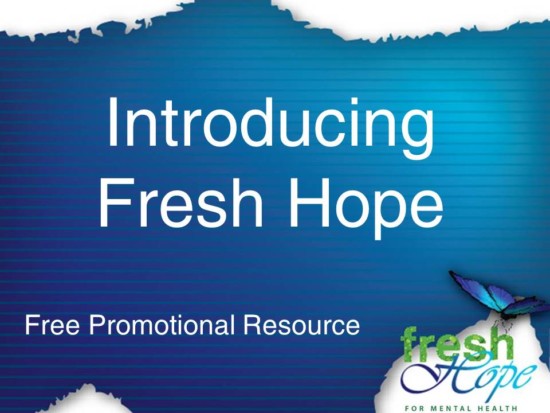Becoming Your Own Advocate by Jamie Meyer

by Jamie Meyer
I remember the day I saw a psychiatrist for the first time. When he spoke the words “major depressive disorder,” I felt both relieved and discouraged. Relief that there was a valid reason why I felt numb and hopeless. Discouragement that I’d been labeled with a mental illness.
After receiving that diagnosis l faithfully took my medication and eventually began seeing a therapist at my doctor’s request. Although I started feeling better after a few months, I still relied on both of them to decide what was best for me. After all, they were the experts and my part was to follow their instructions if I wanted to get well, right?
There came a point in my recovery, however, when I desperately wanted to get off the medications and get back to the “old me.” I mentioned this to my doctor and was told that I’d most likely be on medication the rest of my life. Since my diagnosis had been changed to bipolar 2 at this point, I’m guessing he viewed this as a more serious disorder than depression, one that would require lifelong treatment.
Knowing I was in this for the long haul, I determined to learn more about my diagnosis and the things I could do to stay as healthy as possible. If I had been diagnosed with diabetes or fibromyalgia I’d be searching for more information, so why wouldn’t I take the same approach in learning about an illness in my brain?
While I found many books and articles about bipolar 2, they mostly encouraged people to stay on medications and rely on their doctors and therapists if they wanted to get well. While I agree that these professionals have more education and knowledge about mental disorders than I do, I’m the only one who’s an expert on me! Only l know what it’s like to live with the unique thoughts, feelings, and symptoms that are a part of my illness. The same is true of you as well.
Wanting to improve my thinking, behavior and emotional health, my searching led me to Fresh Hope, a faith-based support group for people experiencing mental health challenges and their loved ones. They focus on living well in spite of having a mental health issue. Fresh Hope groups emphasize that we are not victims of our illness but that we have the right to stand up for ourselves and manage our own mental health care.
Being an advocate for ourselves means we partner with our health care providers rather than giving them sole power to make decisions for us. Appointments become opportunities for mutual discussion. Our part is to communicate honestly with our doctor, letting he or she know if our meds are working or not and requesting changes if side effects are unacceptable or we feel worse instead of better.
In our therapist’s office we have the right to ask for what we need and to be honest if we’re not seeing progress. There may be times when we’ll need to change the subject of a session in order to discuss something urgent that has come up. We’re also free to respectfully disagree with our therapist’s recommendations if we don’t feel they would be helpful in our recovery.
Taking personal responsibility also includes learning about and choosing healthier thoughts and actions that will improve our mental wellness. For example, we can reduce anxiety by learning relaxation techniques or methods to slow down racing thoughts. Choosing to exercise regularly, avoiding junk food, and keeping a gratitude journal can help to improve our mental and emotional stability.
Standing up for ourselves with our doctor and therapist and choosing more positive, helpful thoughts and behaviors are just some of the ways we can manage our mental health condition. We’re less likely to feel helpless and hopeless if we take responsibility for our own wellness rather than depending on someone else to “make us better.”





